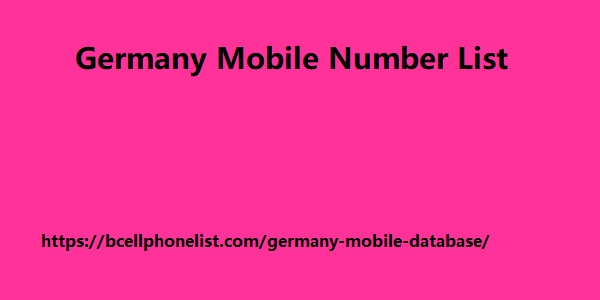Post by account_disabled on Mar 10, 2024 4:26:08 GMT -5
Ate with a technology company to develop online training programs. The clm can ensure that the terms of the collaboration are clearly defined, including aspects such as intellectual property, the responsibility of each party and payment conditions. Food and beverage industry in this industry, risks can include food safety issues, breaches of supplier contracts, and disputes with distributors. A clm helps ensure that agreements with suppliers and distributors are clear and in line with food safety regulations. In this sense, the optimal performance of a supply chain in the food and beverage industry requires precise actions and the alignment of the interests of all parties involved. To achieve this, the components of the chain must be perfectly coordinated, the best way to do so through contract management. With a complete contract management tool, agreements with people, sales suppliers and commercial allies will be more efficient, of quality and under the required contractual compliance, satisfying the needs of end consumers. Example : a restaurant chain needs a contract with a meat supplier to ensure constant, quality supply.
The clm can ensure that contract terms include quality controls, delivery times and payment terms to reduce the risk of receiving poor quality products or non-compliance with the agreement. Financial industry in the financial sector , risks include non- Germany Mobile Number List compliance with regulations, unfulfilled loan agreements, and disputes with investors. A clm helps manage and monitor financial contracts, ensuring regulatory compliance and clarity in terms and conditions. Manual processes can be tedious, error-prone, and consume a lot of time and resources, which is why contract automation helps optimize and streamline banking processes, providing efficiency, accuracy, and cost reduction. Key benefits of contract automation in the financial sector include the ability to generate accurate and consistent contracts quickly and efficiently. Additionally, it can streamline contract review and approval, resulting in a significant reduction in response times and optimization of collaboration between involved parties. Additionally, contract management and monitoring helps to efficiently monitor and manage deadlines, renewals and contractual obligations.

This can avoid delays and ensure compliance with agreements. Practical case: a bank needs to establish contracts with clients to offer mortgage loans. The clm can streamline the negotiation process and ensure that contract terms comply with financial regulations, thereby protecting the bank's interests and reducing the risk of litigation. In summary, the implementation of a contract lifecycle management (clm) system has become one of the main strategies to mitigate risk and optimize costs in various industries. From construction to healthcare, education, food and beverage, and the financial industry, clm offers significant benefits in terms of efficiency, control, regulatory compliance, and sector-specific risk management. By automating legal tasks, improving visibility and control over contracts, and facilitating regulatory compliance, clm provides large companies with a solid foundation to avoid legal disputes, contract breaches, and financial losses. Furthermore, the ability to adapt to the requirements of each industry and address its particular risks makes clm a valuable and versatile tool.
